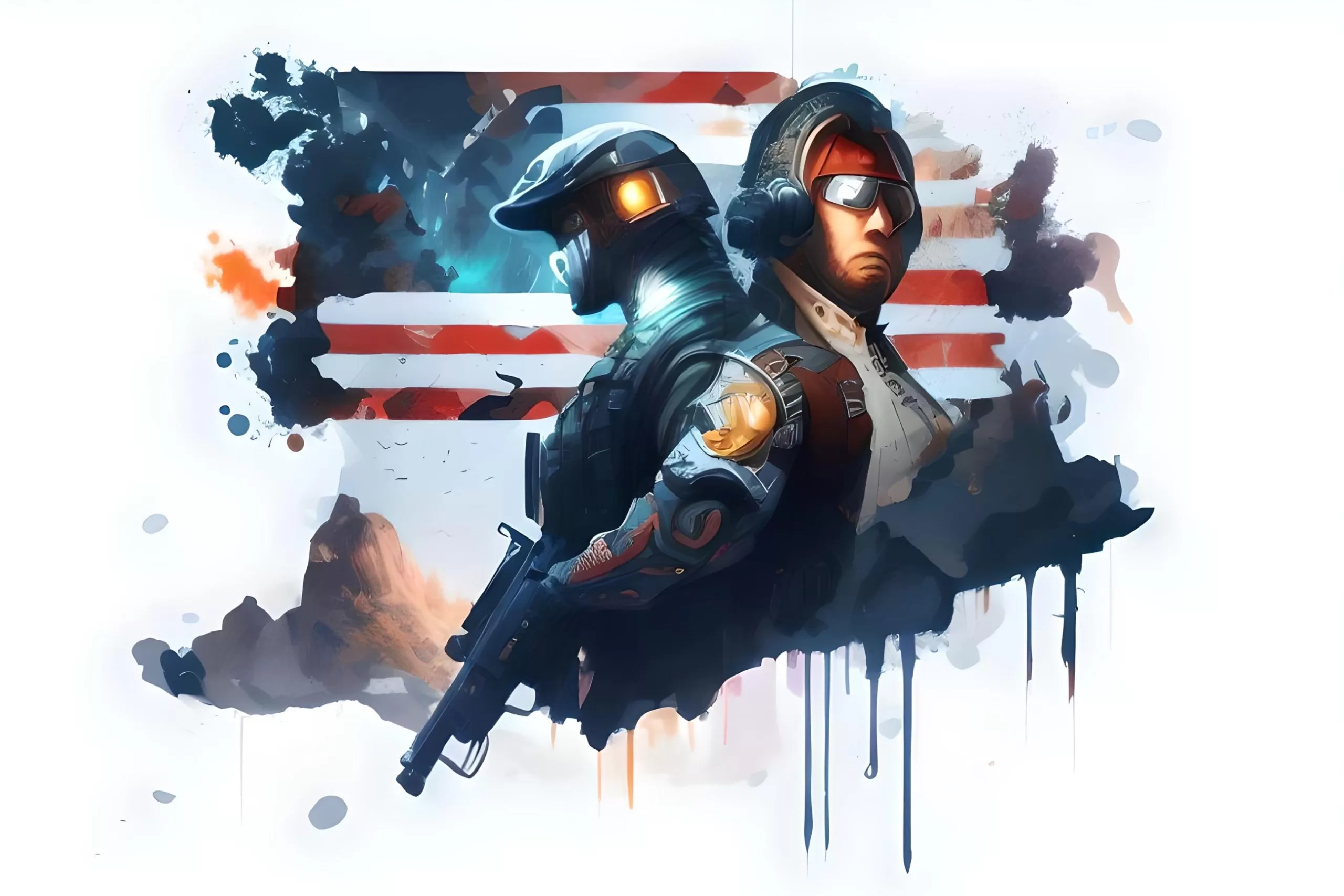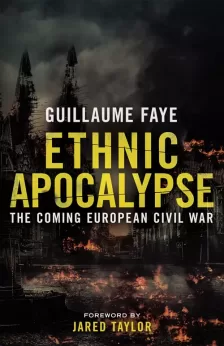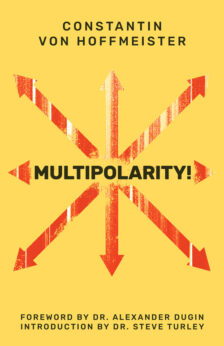“Everybody feels the evil, but no one has courage or energy enough to seek the cure.”
― Alexis de Tocqueville, Democracy in America
Nearly two-hundred and fifty years have elapsed since the fateful opening events of the American Revolution. In that time, the American nation mastered the continent; through its tireless productivity it became unfathomably wealthy; it bound the world into its cultural sphere; and in a crowning piece of Faustian achievement, it mounted the stars. No other nation can match such great accomplishments across the board. All these achievements, however, were not a product of the Masonic credo of “Life, Liberty, and the Pursuit of Happiness.” If anything, these titanic deeds happened despite these men who droned on endlessly about the brotherhood of man and their petty interests concerning the appeasement of small souls. Instead, it was the great men of the American aristocracy who accomplished such feats.
These Aristocratic men like John Smith, Nathaniel Bacon, Andrew Jackson, Theodore Roosevelt, Henry Ford, George S. Patton, and Douglas MacArthur were made in a mold different from that ideal which most identify Americans with. Instead, in a kind of comical tragedy, Americans are perceived, both at home and abroad, to be champions of the “Founders” and are identified with its march to Communism which was started by Lincoln and later advanced by Douglas, King, and Obama, among others. This perception is rendered from the conclusion that these figures are more spiritually in keeping with what the lower castes maligned America to be. This is a mistake. In fact, it is this inferior element which caused the collapse of American society. It is this strain of America that is directly responsible for today’s lower rates of fecundity, for increasing poverty, for social disorder, for moral and political corruption, and ultimately for the destruction which it has wrought all over the world through its history. Yet in the gloom of this tyranny rests a virile America waiting to be reborn, but what is it?
The land of America was seeded with two distinct and antagonistic Anglophonic peoples. On the one hand, the United States was colonized by the Puritans who sought to create a new Zion in the unchartered wildernesses of the New World; conversely, the Cavaliers conquered the dominion of America by the sword to become masters of their own land and of themselves. From early on, these distinct peoples were constantly at each other’s throats. During the Revolution, both nations worked together in an uneasy alliance in their bid for independence from the English Crown, yet this is where their cooperation ended.
The failure of the Articles of Confederation, the breakdown in unity which culminated in the Civil War, and even the modern split over the political philosophy of America can be traced to this primordial struggle between these competing American wills. The difference between these nations could not be starker. The Puritan was defined by his doctrinal insistence on the equality and humility of man before God, his petite bourgeoise mores and values, and his ideal of being a “Savior.” By contrast, the Cavalier valued piety, not purity, before God, Country, and Family. He valued honor, power, and excellence as opposed to petty material accumulation. In short, the Cavalier was the continuance of the British landed warrior-aristocracy. This delineation and conflict between these two types is often overlooked by most, even us Americans; however, it is this Anglo-Saxon phenomenon which has defined American history hitherto and impacted the world universally.
The establishment of the American republic did not bring the domestic tranquility it promised, nor did it unify its constituents. Relations worsened and slowly boiled over the decades into a crescendo that finally erupted and condemned America to her own Jacobin terror. The American Civil War was fought for a myriad of given reasons, but all were superficial in comparison to the principle unarticulated cause. When the Abolitionists, who were the spiritual heirs of the Puritans, claimed the casus belli of ending the “institution of slavery” as their prime motive, they were correct, but in the wrong direction and at a far more superficial level than they could consciously understand. Implicit in the structure of slavery is the Master, who is in his very nature a warrior and commander of men. The subjugation of slaves elevates the superior man above both his peers and the petty labors of life. This power serves as a boon which, in turn, allows him to pursue higher tasks more befitting his magnitude of will and virtù.1
It was this type of being that was the target of hostilities for the Puritan; freeing those under the dominion of these Cavaliers was incidental. The power, glamor, and higher modes of existence which characterized the southern gentlemen’s modus vivendi was a constant and unbearable reminder to these northern socialists of their natural inferiority. It was this visceral hatred, or as Nietzsche aptly puts it, this ressentiment par excellence, that animated the chandala caste in the north to aggress the virgin South. The rest, as they say, is history.
By thunder of cannon fire preceding the push of bayonets, the Union Army waged a dishonorable total war to completion. To describe this conflict as savage would not do it justice. Torrents of blood soaked into American fields in a hellish slurry that was a fixture of every battleground. The horrors of occupation set the land of cotton ablaze in an inferno, and without fail, the flames would be adjoined by a sickly chorus of screams from women and children being routinely raped and murdered. Sherman’s March to the Sea campaign was a scene so viciously base that it would have made Robespierre blush. When the republic was formed, it was built on the foundation of oaths between men made in good faith, and yet that union was erected on faulty ground. The Cavalier, George Washington, should have known better than to believe that pacts between master and slave could be held with firmness. Instead, it was his descendant, General Robert E. Lee, that had to pay the cost, by trial of war, for this naïvely rendered goodwill.
The conclusion of the American Civil War gave birth to an era that has lasted until the modern day. With a few exceptions, it has been a period defined by the primacy of this lower instinct. This period, at first called “Reconstruction,” is characterized by progressive social leveling through mechanisms that are cultural, economic, and coercive. Corroborating the success of the Jacobian spirit following the American Civil War are the added amendments to the Constitution which codified their de facto cultural power into law. Moreover, the actions of the state since then have overwhelmingly been the works of this actor. Its most profound action, its pièce de resistance, was the murder of Western civilization in 1945. These are misdeeds we all know, and this is the state of affairs which are self-evident; however, it bears repeating to know what the origins of our present situation are. Therefore, the only question that remains is: where to?
Out of the tragedy that characterizes the fall of any civilization is a new hope for rebirth. Just as it is a mistake to try to breathe life into a great oak which fell on the forest floor, so too is it folly to try and rekindle a dead civilization. Instead, look above, past the canopy, and see the sun shine through, once again, on the forest floor, blessing new life to where that great oak lay her seeds. It is here where we can be the agents of a new culture and from which place I have a vision for things to come.
When Lycurgus came to the Spartans, they had already made their marks on history. Both Menelaus and Helen were major figures in the Homeric Greek world, who had driven the events that culminated in the collapse of the Trojan state. Yet, since their era of glory, they had fallen from their place in the sun. Once the hegemonic nation of Laconia, their power had receded so dramatically that by the ninth century B.C. the native non-Dorian population started challenging their rule at home. Their waned political power correlated with the Spartans’ deteriorated bio-cultural constitution, itself a product of decadence and lethargy brought on by previous successes. Recognizing this crisis, the Spartans recognized there needed to be a refounding. It was through Lycurgus that the Spartans began anew with more vigor and more resolute than ever. He recognized what the essence of his people was, and from which he derived the plan to forge them anew. I see America cast in the same mold. We have the same proud history of accomplishments and power that our Laconian cousins had. We, too, are faced with a crisis of spiritual dereliction and political instability that the Dorians faced. Most importantly, we too have the promise of rebirth.
The American nation to come is defined by its Cavalier spirit. Secretly hidden within the heart of every American is the impulse of mastery. The will to master ourselves, others, nature, and ultimately the universe is the definition of our essence. Certainly, we are different from the Spartans in our instincts; however, they provide us with a model for how to reclaim our seemingly lost position. It is through the military that all states are born, protected, and maintained.2 It is through military discipline and the warrior ethos that a potent citizenry is honed. The martial virtues are universal mores that confers on its adherents the strengths of discipline, courage, responsibility, resilience, integrity, loyalty, self-assertion, command and obedience, and most importantly, the will to impose constructive cruelty on oneself and others. Though efficacious, these maxims come to the ears of many as a kind of torture, and because of their weak constitution, they shun this harsh truth as false evil. This man is the kind Nietzsche derides as the Last Man, or as Bronze Age Pervert more succinctly refers to as the bugman, who is a slave to others because he is a slave of his own effeminate softness. It is the dominance of this spirit in America, the Puritan spirit, that is the cause of all our current maladies. For any great nation to bear fruit, it must be under the agency of warriors, since it is they alone who are able to continually subjugate these slavish impulses in favor of courageous action. It is this latter ethos that can find fertile ground in the soul of the Cavalier.
The New World is not a new place at all. For Europeans, it was on these distant horizons that they encountered a primordial spirit that challenged them to greater heights. The newfound distance from Christian tyranny reacquainted us to the Agonal nature of life which was pregnant with naked adversity for us to master. This natural challenge is what served as a Spartan Agon inspiring strong life to take root. We conquered the harsh school of nature, but it was our success that has undone us in decadence. If we are to find a way out of our crisis we must choose to affirm what the Spartans did long ago. If we do, our glory won’t only be martial, but will express itself in culture, science, and in the richness of the individual’s soul. The American is a product of Europe’s best and worst. It is here that the naturally aristocratic found new possibilities. It is in our spirit that can be found born Titans of Will. All that remains for us Cavaliers to do is to reach down into our souls and seize that golden fiber of destiny the Fates have blessed us with. Already, I feel the vigor of a strength, long forgotten by my countrymen, welling up to the surface. In the Old World, this titanic spirit was imprisoned, but it is here in America where it can be free. America is the land where Titans roam the earth. The Puritan for too long has tried to press us to death, and yet, like Giles Corey, we yell out: America lives!








A good read and inspirational for sure. I too look for the reawakening of the Warrior Spirit and American Identity and Ethnos. I do however subscribe more to the four folkways described in Albions Seed. With each having its plus and minus (and the Quaker component being the most detrimental). I think we need to identify the positive and negative in each, and utilize that in the formation of our rebirth and refoundation.
Arktos is a great site!
What a unique perspective. Student of history though I am, I never considered the possibility that the difference between North and South lay in their respective religious backgrounds.
Either way, though I sympathize with Southern Secession even today, we cannot deny the North’s ultimately successful war machine. They may or may not have been “cavalier,” but they were undeniably victorious.